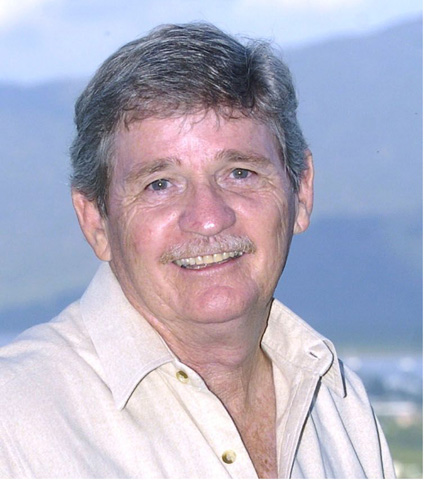WATER
AUSTRALIA'S
FUTURE
.
WATER
- THE
EASY WAY
For some 10 years now
consecutive Labor Governments have sat on their hands in Brisbane and watched
the gradual running down of the States infrastructure. At the same time it has
watched an influx of some 1500 people a week move into South East Queensland and
have gladly accepted the revenue from this influx in the form of stamp duties,
taxes, fees and charges.
There is no evidence
that at any stage they took an overall view of the situation with a view to
meeting not only the needs of the expanding population but the means of
financing it, and the logistics of supplying it. Water is the most urgently
needed right now but the failure applies across the board to hospitals,
electricity, roads, transport and any number of other areas.
With water it’s too
late now to be corrected in the short term by the construction of
infrastructure. In the long-term, yes, but the short term no!
The retiring Minister
for Natural Resources Mines and water, Henry Palaszczuk, who was responsible for
water, should be concerned that it was he who produced a dissenting report from
a Parliamentary Committee that otherwise recommended the construction of the
Wolfdene Dam. But this doesn’t seem to be the case. In 1989 the Goss Labor
government cancelled the Wolfdene Dam construction and of course reaped the
short-term accolades. It is Queenslanders who will pay now.
In the course of the
2006 State Election Campaign Premier Beattie visited the Lockyer, once the salad
bowl for South East Queensland, and now an area that has been suffering from
drought conditions for some 6 years. The Premier, naturally enough, expressed
some despair that the drought had gone on for so long and suggested to the
farmers of the area that he may have to pay them not to plant their crops.
On the surface this
seems an excellent idea but on more mature reflection there is obviously a need
for caution on at least a couple of counts.
Firstly, just
consider how much would Premier Beattie pay farmers and how would it be
calculated. There is of course no official word on this at this stage but any
payment would have to be calculated on an open and equitable basis. It could not
be based on income, as the great likelihood is that given the prevailing
conditions in the area in recent years incomes would be minimal and a percentage
of minimal, if any, isn’t much either.
Secondly the payment
in question is one of the lesser worries. Behind this payment, were it ever
made, is a principle that could have long-term consequences. Both the cities and
rural areas are short of water. Water sells in the cities for much more than it
would bring for rural uses. Should farmers agree to release their water
entitlement for city uses, or have it taken from them, for a payment, then there
are a few things to watch out for. Once this precedent is set then we may not
need a water crisis before the principle clicks in.
Taking water from
farmers is quite cheap compared to additional water infrastructure costs, both
financially and politically, and consequently it could become the order of the
day. So farmers should be well advised before they even consider this course or
take the ‘thirty pieces of silver’.
Thirdly, and this is
common to all the infrastructure projects today, why would the Government build
water infrastructure when both the State and Federal governments are so wedded
to the concept of privatisation. Clearly the purchase of rural water at rock
bottom prices and marketing it in the cities at a huge mark up must enhance the
bottom line profit and so make it more attractive to multinational conglomerates
when the sale time inevitably comes around, particularly if there is no extra
infrastructure to construct or maintain.
There is no doubt
that all the utilities that we [the people] presently own, including water, will
be sold off to multinational interests. We have seen our banks, Qantas and
Telstra go already and water will definitely go as well if there isn’t a
serious change of policy in Australia. Taking water from rural areas for sale at
city prices is profitable and attractive to financial interests and of course
once they get it we will have to pay whatever tariff they set.
So all of us,
particularly primary producers, had better be on our guard. The writing is on
the wall. While the drought is a threat to primary producers it is an
opportunity for Government. It will also be an opportunity for international
finance, and they won’t miss it, or for that matter… us.
Return to: INDEX
GO TO: INDEPENDENT
VIEW
![]()
![]()



